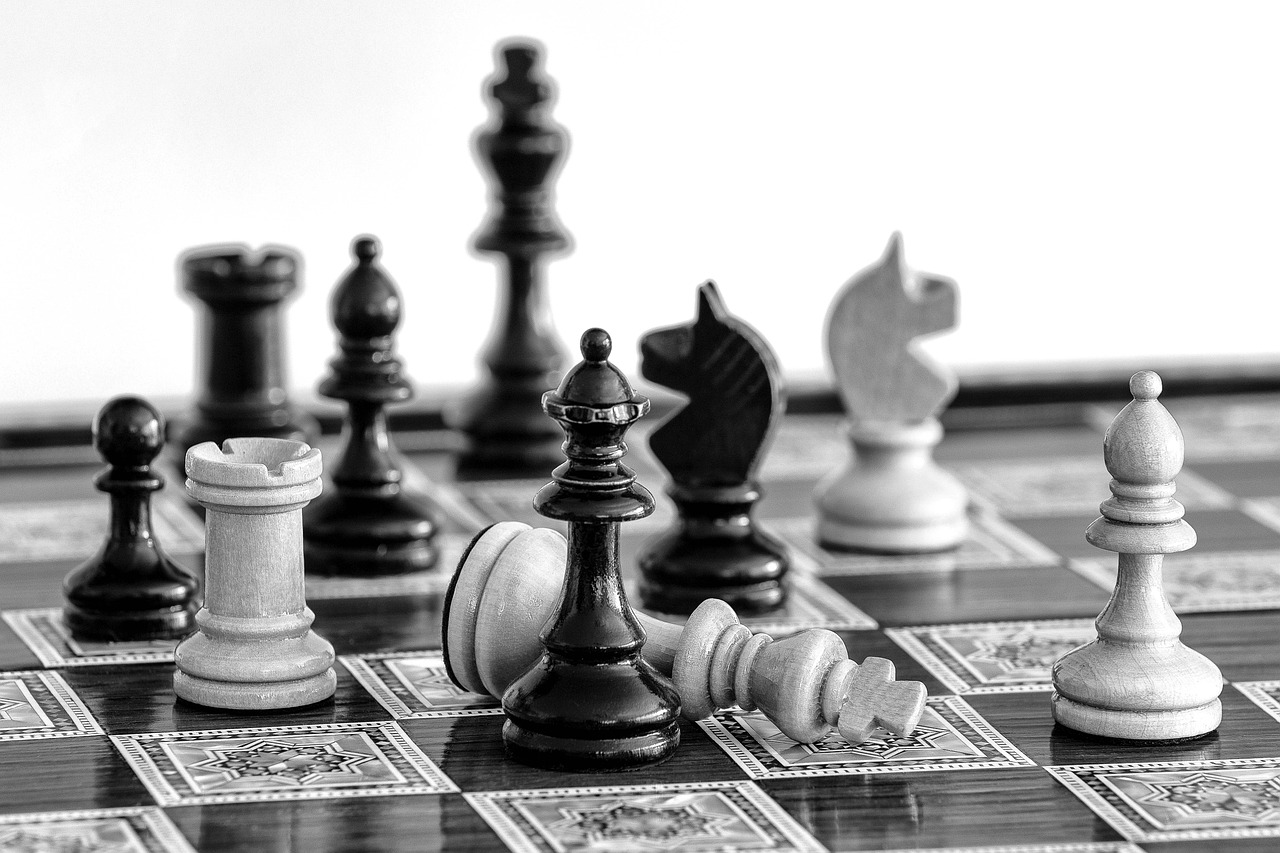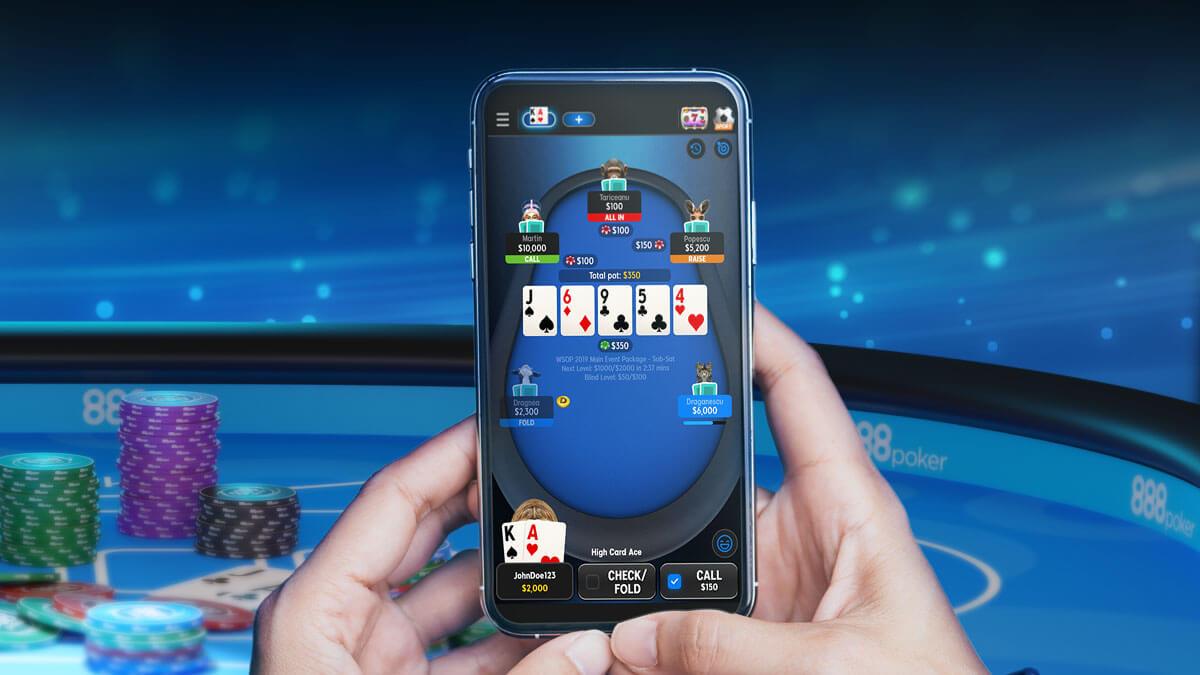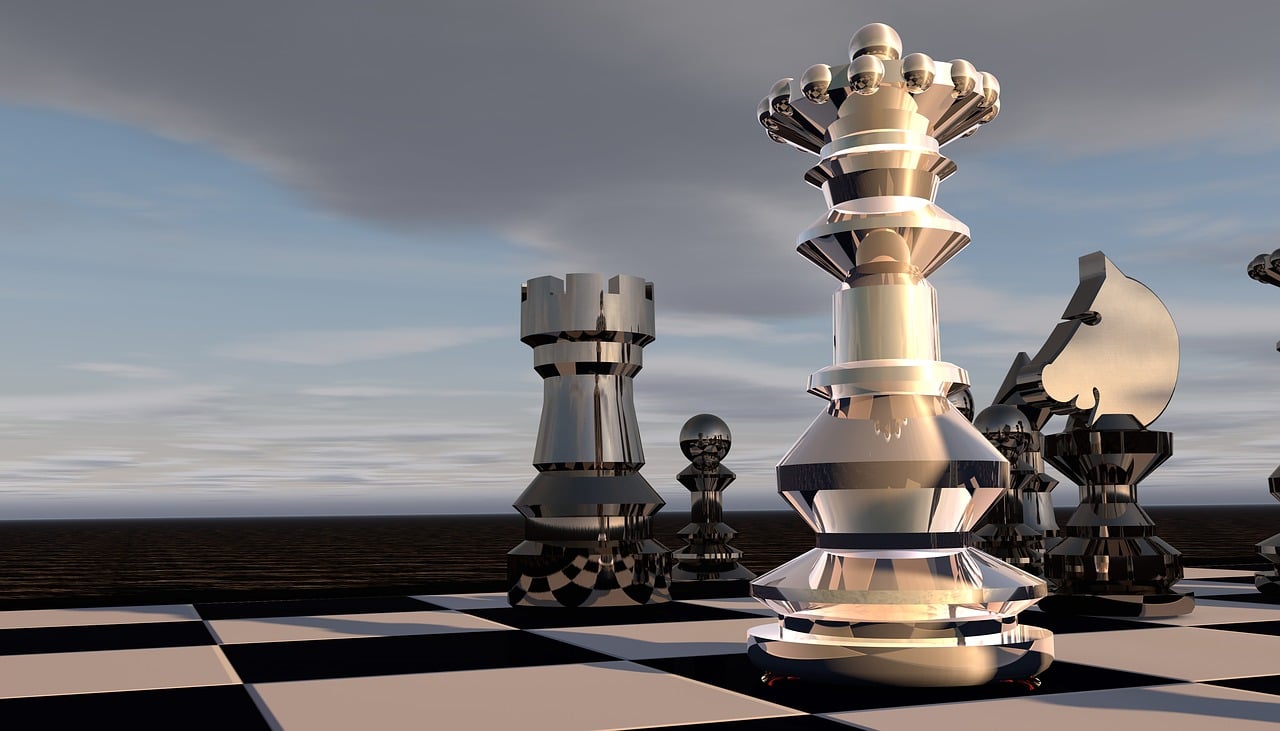The core rules of poker haven’t changed too much over the years. But what would happen if poker definitions adopted rules from other sports? Would the game benefit or fall flat on its face cards?
In this article, we’ll be playing with this idea and considering what might happen if poker inherited some chess rules.
Note: We’ll focus on speed chess because it has fascinating time and rating rules.
What Is Speed Chess?
You mightn’t have heard of speed chess, but it’s like an all-you-can-eat buffet. The name says it all! Many people think of chess as a slow, boring game. But speed chess is all about action, with players having a tight time limit to finish the game.
Clocks range from 1 minute to 60 minutes, and each player has their own, which begins counting down as soon as their turn begins.
It might remind you of a shot clock in poker. But your hand will fold if you run out of time at the tables. In speed chess, an empty time bank is an instant loss, even if you were winning.

Chess clocks don’t reset at the start of your turn, meaning your time bank has to last you the entire game.
As you might expect, the clock decides the outcome in many speed chess games. Games regularly regress to chaotic button-clicking as players try to outlast their opponents.
Adding a Chess Clock to Poker
But what would happen to poker if we brought the same time bank rules to poker tournaments?
At a glance, it seems simple: These clocks would force people to play as quickly as possible. This result might seem worthwhile, given all the slow play going on right now. In reality, speed-chess clocks make the game fast and ferocious.
Time banks can be as short as a minute. So, implementing this feature at the poker tables would inevitably lead to all-out chaos.
Tournament survival would be more about the clock than chips or poker hand rankings. It would be a matter of time before people began panicking and going all-in blind in a desperate attempt to play faster.
Somehow, a short stack and a minute would become more valuable than a chip lead and 3 seconds.

Players are unlikely to tank by running down the clock. The pressure of the clock would force players to rush and make all kinds of blunders, resulting in frustration.
Casinos would find it challenging to implement time banks in the live arena. They would have to hire more staff to cover the extra workload, managing the table as clocks began to dwindle.
Every second would become near impossible to monitor. The clocks would become prime targets for abuse in the event of a discrepancy.
There are physical limitations, too:
- Players would struggle to stack and count their chips in time.
- And who’s clock would dealer actions use?
Traditionally, short speed-chess-style clocks wouldn’t work in poker, which is a real shame since excessive tanking is a big issue in live events.
But a more generous chess-inspired clock could be a workable addition to the game if the time bank was adequate and replenished regularly.
As well as punishing time-wasting, it would remove the need for ‘calling the clock’. This system would reward players who don’t waste time. They would get an extra few seconds whenever they found themselves in a sticky spot.
But what would happen if poker used another essential component of online speed chess, the rating system?
The Rating System
One of the biggest speed-chess sites is chess.com, which hosts billions of games each month. Unlike Caribbean stud poker, the site is unlikely to win any originality awards for its name, But the site has developed a very well-respected rating system.
Their method ensures that players only have access to games with players of similar skill.

This rule levels the playing field, making the whole chess experience far more competitive, fun and rewarding. Both players have a realistic chance of winning any single game.
So, how would a similar system impact poker?
The first thing you would notice is that it would be far more difficult to find a game. Even though there are players of various levels at all stakes, only those of similar abilities can play each other.
This filter divides the player pool at each stake into several smaller tiers.
- Let’s say you play $0.25/$0.50.
- There are 500 regular players at your stake.
- Around 5% of these players are active at any one time.
With some quick maths, there would typically be around 25 players looking for a $0.25/$0.50 game.
Although 25 players is more than enough to rumble, let’s use a chess-like rating system.
Rank the players and see what happens.
No official poker skill rating system exists right now, but let’s pretend there is. The system divides players into five skill categories based on their expected win rate.
Let’s say that the system came up with this split for the above $0.25/$0.50 game:
- NEWBIE --- (Skill level of 1-10) 20% of the player pool --- (5 active players)
- POOR --- (Skill level of 11-20) 20% of the player pool --- (5 active players)
- AVERAGE --- (Skill level of 21-30) 20% of the player pool --- (5 active players)
- GOOD --- (Skill level of 31-40) 20% of the player pool --- (5 active players)
- EXCELLENT --- (Skill level of 41-50) 20% of the player pool --- (5 active players)
If we’re following the rules of the rating system at chess.com, players only have access to others of similar ability. So, with an even split, we would see five players in each pool at any time.
That’s barely enough to get a 6-max table started and more destructive than leaving things as they are.
If we mix things up and make the split a little more realistic, we might end up with a player pool a bit like this one:
- NEWBIE --- (Skill level of 1-10) 5% of the player pool --- (1.25 active players)
- POOR --- (Skill level of 11-20) 30% of the player pool --- (7.5 active players)
- AVERAGE --- (Skill level of 21-30) 50% of the player pool --- (12.5 active players)
- GOOD --- (Skill level of 31-40) 10% of the player pool --- (2.5 active players)
- EXCELLENT --- (Skill level of 41-50) 5% of the player pool --- (1.25 active players)
As you can see, this only makes things worse. Even fewer games are running than before, and three of the five tiers cannot get any action. All players could participate if the different skill levels played together. But it would also undermine the entire idea of implementing a chess-style rating system in the first place.

Now, you might argue that the larger player pool on a more popular poker site would solve this problem. Say, for example, there were 1000 active regulars. We would have enough players to run several tables at each stake.
Here, a rating system would work well, allowing players to test their skills on a fair and even battlefield – no poker cheat sheet needed… or would it?
Well, in short, no.
This system would allow us to identify the best players in the world. But a rating system would ruin the game in a lot of ways.
Let’s look at some next.
The Level Playing Field
The biggest issue would be the levelling of the playing field. It might seem cool to see how you do in a competitive poker board game. But, in reality, this system doesn’t translate well to poker. Remember, chess rating systems make games competitive and give each player a realistic chance of winning.
So, if the system works well, players will win as often as they lose or, in poker terms, break even. This reason is the exact opposite of why many people play poker.
There would be no whales dropping by and dumping a quick bag of money, no ego or tilting players coming to blow off steam or play games they cannot beat. These guys would have to play with players of their own ability. And the absence of these cash injections would strangle the games.
Players would have to battle for every single cent. The majority would struggle to beat the rake in universally challenging games.
Those at the top of the skill bracket would still profit from those at the bottom. But it would be far less than now, and those at the top would have no financial incentive to improve. Getting better would push top players up into the upper tiers, making winning increasingly harder.

This feature would suck all the fun out of the game pretty quickly. Poker would become even more of a grind - more a test of control and discipline than skill.
Some players may be offended or disagree with their rating. Undoubtedly, competitive individuals would work hard to get to the top of the game. But many players would probably give up poker or move to games like chess.
Player pools would likely dwindle as a result.
Rating systems work well in chess because people play to test their skills. But this isn’t why many people choose to play poker. They play for the chance to make a quick buck, for the gamble, and for the fun.
So, a chess rating system would ruin that.
A Poker Dream Would Be Dead
One of the most beautiful things about poker is the access that amateurs get to the pros. In no other sport can you compete against the elite and have a legitimate chance of beating them.
No one would be ‘running a move on Chan’ or battling with their poker idol in rating-based games.
The greats would be as inaccessible in poker as in any other sport, ruining one of the unique beauties of poker.
Games Would Die
It’s likely that a skill-matching system would probably kill the highest-stakes games too. The best players in the world are undoubtedly very competitive. They’re very smart and avoid players they don’t have an edge against.
- Often, games centre around a handful of super-wealthy recreational players, with the sharks sitting, waiting for them to register.
- Wealthy recreational and fringe players fuel the highest-stakes games by taking shots with an influx of money.
Say, the pool of players good enough to sit at the toughest games in the world is very small. It’s hard to see how the games would survive with those feeding money into it unable to sit.

Cheating
A ranking system would play into the hands of cheats, too. With game access limited by rating, cheats would have a huge incentive to manipulate ratings by playing a few hands badly at a lower stake. They could then play higher stakes with a lower rating against weaker opposition.
It would take time to detect cheaters, giving them time to withdraw or transfer the money. And even when caught, cheats could simply make new accounts, rinse and repeat the process.
Chess.com sees this happening often. Occasionally, they will adjust your chess rating if you have played against someone cheating the system.
If cheating happens on a site where a score is the only incentive, imagine how much more common it would be in poker, where there’s money to be made.
So, there you have it.
How do you think poker would change if it adopted the rules of speed chess?


